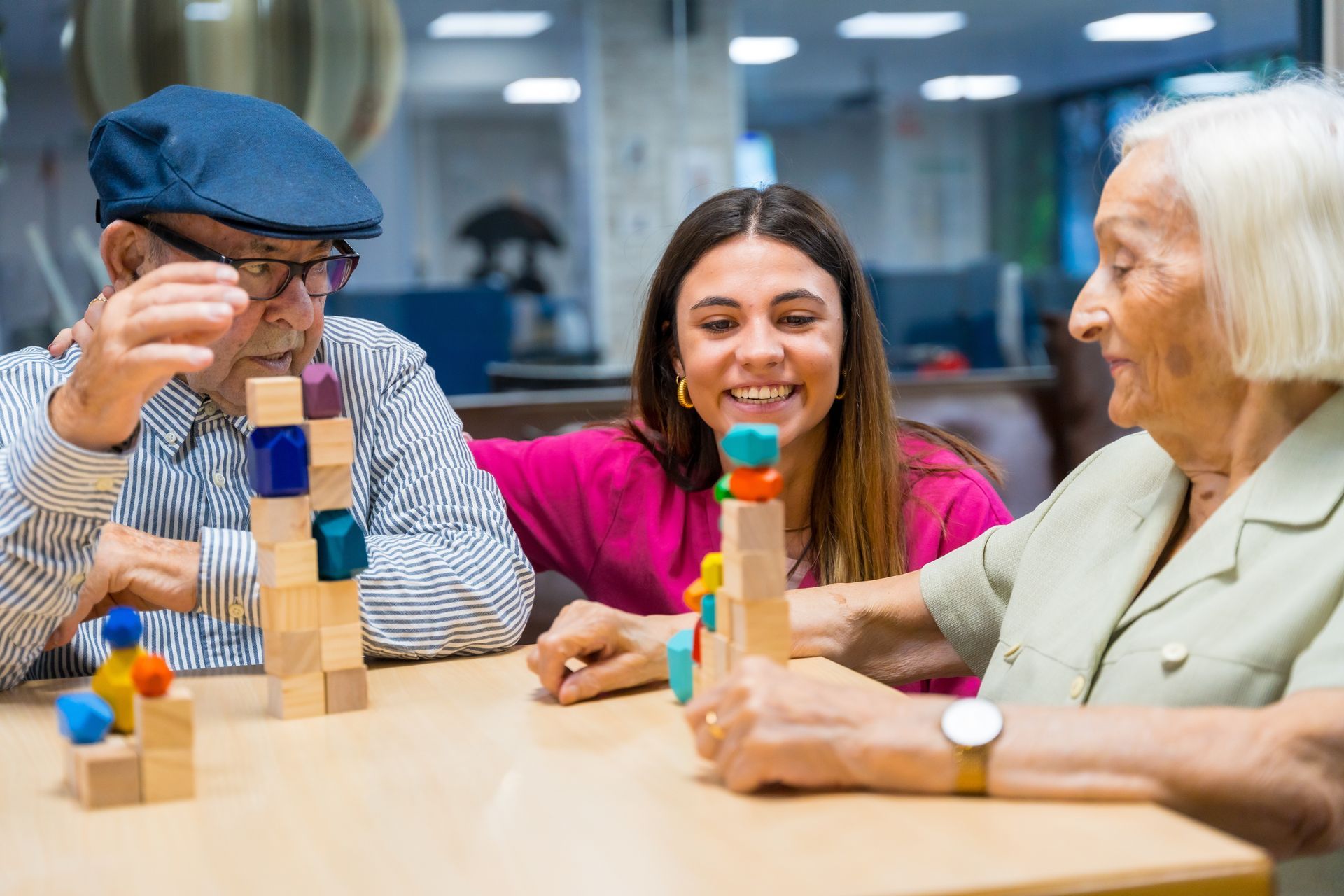BLOG
Celebrating Black History Month: Honoring the Contributions of Black Seniors and Caregivers in Our Community
Black History Month is a time to honor the profound contributions of Black individuals throughout history. In the realm of senior care, Black seniors and caregivers have played pivotal roles, enriching communities with their dedication, resilience, and cultural heritage. Recognizing their impact not only pays homage to their legacy but also fosters a more inclusive and equitable environment in assisted living communities.
The Historical Impact of Black Seniors in Our Communities
Black seniors have been instrumental in shaping our communities' cultural and social fabric. Their experiences and wisdom have guided generations, fostering a sense of identity and continuity. Their influence is profound, from their participation in civil rights movements to their contributions to local arts and education.
The resilience demonstrated by Black seniors in the face of systemic challenges serves as an inspiration. Their perseverance has paved the way for progress and equality, enriching the collective community experience.
Incorporating the histories of Black seniors into community programs enhances cultural awareness. Educational initiatives highlighting their achievements provide a more comprehensive view of societal development.
Such programs honor their contributions and educate others about the diverse threads that weave our communal tapestry. This approach nurtures respect and appreciation for our communities’ multifaceted nature.
The Role of Black Caregivers in Senior Care
Black caregivers have long been the backbone of support for many families and communities. Their dedication ensures that seniors receive compassionate and culturally competent care. Despite facing unique challenges, including systemic disparities, they continue to provide unwavering support. Their commitment often stems from a deep sense of duty and cultural tradition.

Black caregivers’ contributions extend beyond basic care; they often advocate for their loved ones. Navigating complex healthcare systems requires resilience and resourcefulness. Their efforts ensure that seniors' needs are met with dignity and respect. This advocacy is crucial in bridging gaps and overcoming barriers within the healthcare system.
Studies have shown that African American caregivers often find a sense of purpose in their roles. According to AARP’s report, many Black caregivers take pride in supporting their family members. This sense of fulfillment underscores the cultural values of family and community prevalent in Black communities and well beyond Black History Month.
However, the emotional and physical toll on Black caregivers can be significant. Balancing caregiving with other responsibilities often leads to stress and burnout. Access to support resources is essential to alleviate this burden. Providing adequate support ensures that caregivers can maintain their well-being while continuing their vital work.
Assisted living communities can support Black caregivers by offering culturally sensitive resources and respite care. Recognizing and addressing their unique challenges fosters a more inclusive environment. By providing tailored support, these communities can enhance the quality of life for both caregivers and residents. This approach acknowledges the invaluable role caregivers play in the well-being of seniors.
Promoting Diversity, Equity, and Inclusion in Assisted Living
Creating an inclusive environment in assisted living facilities is paramount. Embracing diversity ensures that all residents feel valued and respected. Implementing diversity, equity, and inclusion (DEI) programs can address systemic disparities. These initiatives promote a culture of understanding and acceptance.
Reports revealed that more senior living operators are adopting DEI programs, though progress remains. This shift indicates a growing recognition of the importance of inclusivity. By actively working toward equitable practices, facilities can better serve diverse populations. This commitment reflects a dedication to continuous improvement and cultural competence.
Cultural competence training is a critical component of DEI efforts. Understanding residents' cultural backgrounds enhances the quality of care, fosters trust, and improves communication between caregivers and residents. Ongoing education ensures that staff remain informed and sensitive to the needs of all residents.
Inclusive activities that celebrate various cultures can enrich the resident experience. For example, events honoring Black History Month provide opportunities for education and celebration. Such programs encourage community engagement and mutual respect and offer residents a platform to share their heritage and stories.
Challenges Faced by Black Seniors and Caregivers
Black seniors and caregivers often encounter unique challenges within the healthcare system. Many face disparities in access to quality medical care, financial resources, and long-term support. According to the Mayo Clinic, Black Americans are more likely to experience chronic health conditions yet receive less preventive care. These challenges make it crucial for assisted living communities to offer specialized support tailored to their needs.
Financial barriers also impact Black seniors' access to assisted living services. Many rely on fixed incomes, such as Social Security, which may not cover the full cost of care. A Kaiser Family Foundation report found that Black retirees have significantly less retirement savings than their White counterparts. Assisted living facilities that provide flexible financial options can help bridge this gap and ensure accessibility for all.
Another challenge is the historical mistrust of medical and long-term care institutions. Past injustices have led many Black seniors to be skeptical of healthcare providers, which can affect their willingness to seek assistance. Building trust through culturally competent care and community engagement is essential. Assisted living facilities must foster relationships based on transparency, respect, and individualized care.
Celebrating Black History Month in Assisted Living Communities
Black History Month allows assisted living communities to celebrate the achievements and contributions of Black seniors and caregivers. Hosting educational events, storytelling sessions, and cultural celebrations can honor their legacy. These activities foster a sense of belonging and encourage residents to share their personal histories. Engaging with these stories strengthens community bonds and deepens cultural appreciation.

Assisted living communities can also highlight historical figures who have shaped healthcare and senior care. Pioneers such as Dr. Rebecca Lee Crumpler, the first Black woman to earn a medical degree in the U.S., paved the way for equitable healthcare. Recognizing these figures inspires residents and caregivers alike and reinforces the importance of inclusivity in healthcare and senior services.
Intergenerational programs can further enhance Black History Month celebrations. Pairing seniors with younger generations allows for knowledge-sharing and mentorship. These connections help preserve history while fostering relationships between different age groups. Assisted living communities encourage intergenerational engagement and create environments where wisdom and heritage thrive.
Supporting Black-owned businesses and organizations during Black History Month is another meaningful way to celebrate. Assisted living communities can feature vendors, speakers, and performers from Black communities. This support strengthens local economies and acknowledges the cultural richness that Black entrepreneurs bring. Investing in diverse businesses reflects a commitment to equity and inclusion.
Black History Month should also serve as a time for reflection and commitment to ongoing diversity efforts. Assisted living facilities should evaluate their policies, training programs, and hiring practices to ensure they promote inclusivity. Taking actionable steps beyond February demonstrates a long-term dedication to equity. Residents and staff benefit from an environment that values and uplifts all cultural backgrounds.
Honoring the Legacy of Black Seniors and Caregivers
The contributions of Black seniors and caregivers extend far beyond Black History Month. Their resilience, wisdom, and dedication have shaped families, communities, and industries. Acknowledging and supporting their needs is essential to fostering an inclusive assisted living environment.
Assured Senior Living is committed to providing compassionate, personalized care that respects and values diversity. Our communities celebrate the unique experiences of each resident, ensuring they feel heard and supported. Contact us today to learn more about our approach to care and how we honor every resident’s journey.















